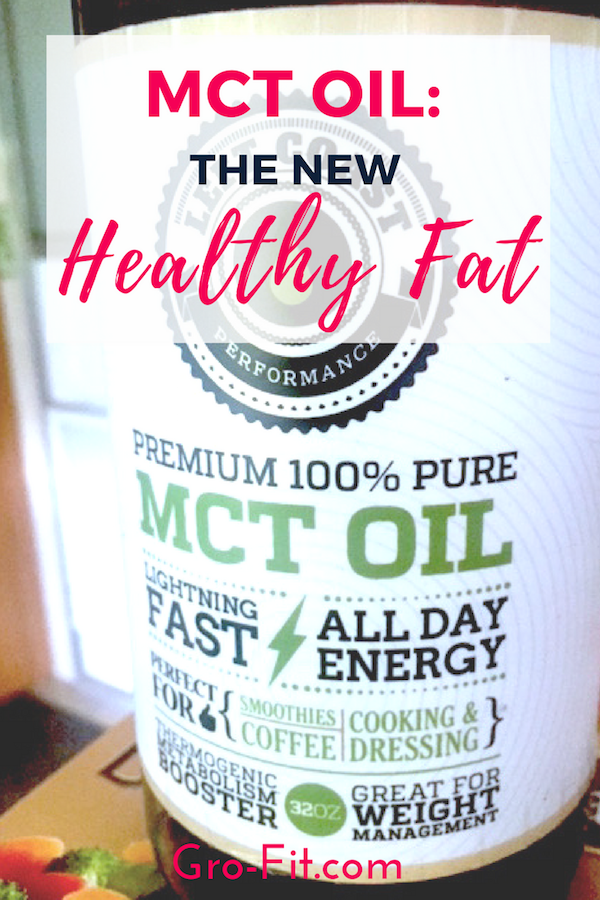You may have heard about a new healthy oil recently called MCT oil. MCT stands for medium-chain triglycerides and is a type of fat that is found in certain oils, most notably coconut oil.

What is it?
There are numerous types of fats, fatty acids, and oils that are found in our food. Some are good for us, others not so much. MCT fall between long-chain and short-chain fatty acids, all of which are determined by the number of carbon atoms in their structure. What makes MCT special is that because of its atomic structure, this fat is processed in your gut and then heads straight for your liver. The liver then breaks the MCT down and uses it immediately as a source of energy or is turned into ketones. Basically, MCT doesn’t hang around and build up around your midsection. It is turned into fuel for your body. If this principle sounds familiar it’s because it’s the basis of the popular ketogenic diet.
Where is it found?
If you’re looking to add MCT into your diet you’ll find them in coconut oil, palm kernel oil, dairy products (although the percentage of MCT is much lower in dairy than in the aforementioned oils), and in MCT supplements. If you choose to use MCT supplements do you research on the brand before stocking up. Some manufacturers use “MCT oil” and “liquid coconut oil” interchangeably which isn’t always correct.
You’ll want to look for either 100% caprylic acid (C8), 100% capric acid (C10) or a combination of the two. It is recommended that if you are using a supplement to work up to the suggested dosage as taking the full dose can cause minor stomach discomfort at first.
Please also note that MCT oil has a low smoke point, and is therefore not suitable for cooking. But by all means, switch out cooking oils for solid coconut oil for a healthy boost.
Potential Benefits
More studies need to be conducted but MCT oil has promising effects for people looking to lose weight, boost their endurance during a workout, and even those looking for improved brain function.
As mentioned earlier, a byproduct of MCT being broken down in the liver is ketones. When it comes weight loss, ketones have been shown to increase fullness compared to other fats, as well as increase the body’s ability to burn fat and calories.
Related Post: WTF is Keto? The Pros and Cons of Carb Reduction
When looking at the possible effects on the brain, ketones also come into play. Ketones can cross from the blood to the brain, something other fatty acids cannot do. This provides an alternative energy source for the brain, which ordinarily uses glucose for fuel. There is some early evidence that ketones may also help stave off some forms of dementia.
MCT has also been linked to and used for:
- lower cholesterol levels
- lower blood sugar levels
- increased insulin sensitivity in adults with type 2 diabetes
- treating malnutrition and disorders that hinder nutrient absorption
- treating epilepsy
Some sources discourage people with type 1 diabetes from taking MCT due to the accompanying production of ketones and the increased risk of ketoacidosis.
As always, before starting any supplement regimen, be sure to consult with your doctor.
While it’s not a miracle solution for weight loss, MCT may provide numerous benefits and could be worth adding to your diet.














